Sitting cross-legged for too long and too often can bring the following health risks:
Imbalance of the hip, pelvis and spine joints
One of the obvious consequences of sitting cross-legged for a long time is pelvic misalignment, causing one hip to rotate or be higher than the other. When the pelvis is misaligned, the spine will bend, rotate or tilt to maintain the center of gravity, leading to slight spinal deformities over time, according to the health website Livestrong (USA).
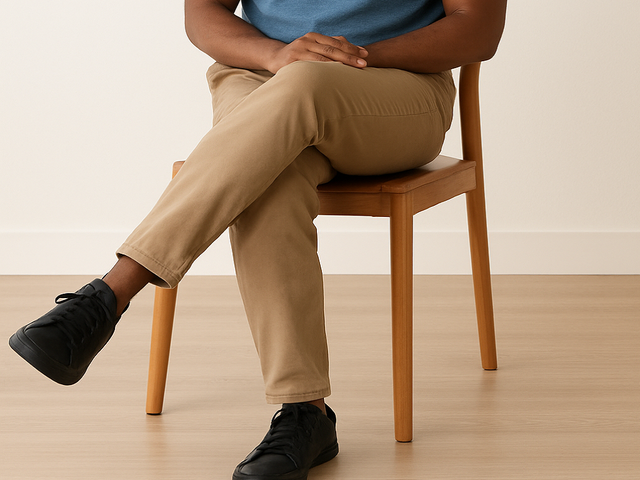
Sitting cross-legged for long periods of time causes a number of negative effects on the body.
PHOTO: AI
Sitting cross-legged for long periods of time can not only change the shape and position of the pelvis, but also affect the shoulders and neck as the body tries to maintain balance. Experts also warn that this condition, if prolonged, can cause muscle imbalances, leading to lower back pain, hip pain and spinal pain.
Puts pressure on joints, causing inflammation
Sitting cross-legged puts more twisting and compression on the knee joint than sitting with your legs straight. This constant crossing of the legs can increase pressure on the knee and hip joints, causing pain, inflammation, and even damage to the cartilage and internal structures of the joint.
For people who already have joint problems such as arthritis, weak meniscus or narrowed joint spaces, sitting with legs crossed for long periods of time can make these conditions worse.
Increased risk of varicose veins
Crossing your legs also impedes blood circulation in your legs, especially when one leg is pressed against the other, putting pressure on blood vessels and nerves. The result is numbness, itching, tingling, and even mild swelling.
In particular, sitting cross-legged for a long time also increases the risk of varicose veins. The cause is due to blood stagnation in the leg veins. When blood circulation is poor, the possibility of blood clots forming in the deep veins also increases if you sit still for too long.
Nerve compression
When you sit cross-legged, your knees and ankles can press on nerves, especially the nerves in the outer knee area. This can cause numbness, tingling, pins and needles, or temporary loss of sensation.
Nerve compression that lasts for only a few minutes to a few dozen minutes is normal. However, if it is repeated over a long period of time, it can lead to nerve damage. In addition, people with pre-existing neurological conditions such as diabetes or vascular problems should be cautious when sitting cross-legged frequently.
One of the best ways to prevent the harmful effects of sitting with your legs crossed is to change positions frequently. Every 30 minutes, stand up, walk around, or stretch. Studies show that changing positions regularly reduces venous pressure and improves blood circulation. If possible, do stretches for your hips, hamstrings, calves, and lower back after sitting with your legs crossed for a long time, according to Livestrong .
Source: https://thanhnien.vn/4-nguy-co-suc-khoe-nghiem-trong-khi-ngoi-bat-cheo-chan-qua-lau-18525091813463429.htm



![[Photo] Prime Minister Pham Minh Chinh attends the groundbreaking ceremony of two key projects in Hai Phong city](https://vphoto.vietnam.vn/thumb/1200x675/vietnam/resource/IMAGE/2025/9/27/6adba56d5d94403093a074ac6496ec9d)




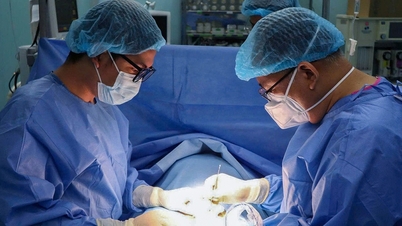





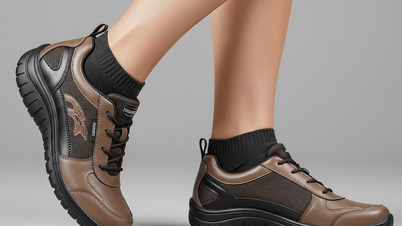
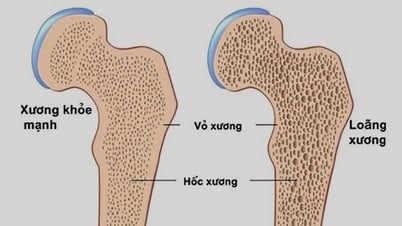


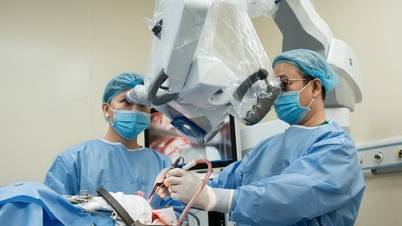



















































































Comment (0)